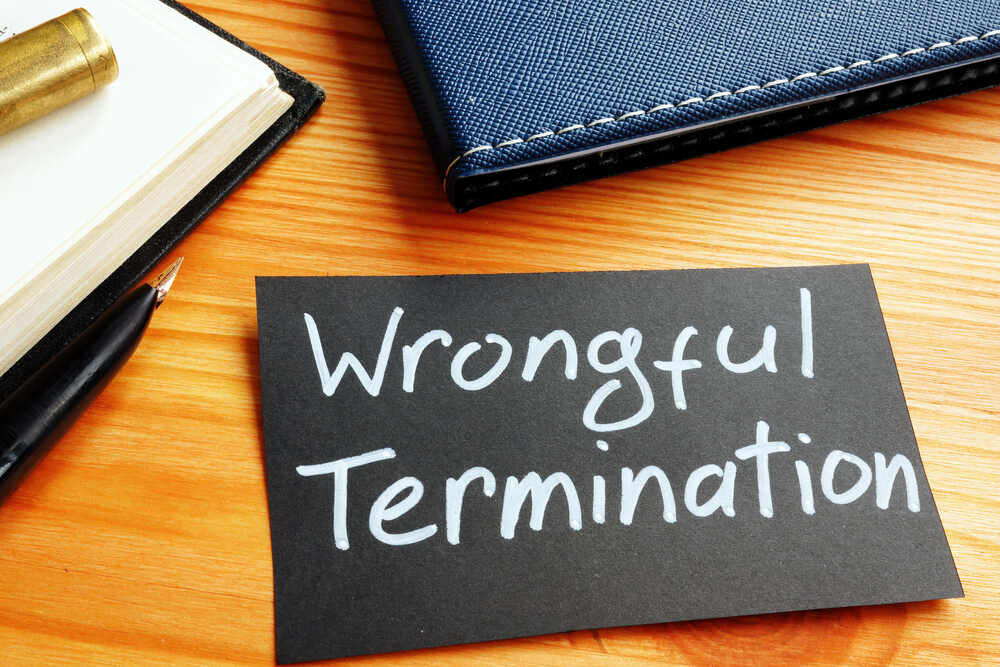Being fired from your job is never a pleasant experience, and an unjust or potentially illegal termination can be difficult to deal with. Understanding the concept of at-will employment and its implications can be unintuitive. There are many circumstances in which unfair or unreasonable behavior from an employer is still legal. This can be frustrating for employees who have been terminated from their jobs for legal reasons. However, Minnesota residents do benefit from laws that protect from discriminatory or retaliatory firing, so understanding what is and is not legally allowed is important. This article will cover how at-will employment and wrongful termination laws could affect you if you’ve been fired in Minnesota.
Understanding At-Will Employment
At-will employment means that either the employer or the employee can end the relationship at any time and for any reason, with a few exceptions. Warnings and notice are not required before termination. This is the case for most American workers, as all states except for Montana use this concept in their employment laws.
There are a number of reasons you could be fired from a job that feel unfair but are in reality perfectly legal. A survey from Comparably shows that around one-third of workers have been fired at some point during their careers. Being terminated from a job is a relatively common experience, and many workers who feel frustrated with their employers may wonder if they can sue for wrongful termination.
Four Important Reminders
1. Your former employer needs to give you a reason for termination if requested in writing.
Minnesota law requires employers to give their former employees a truthful reason for termination if the former employee requests one. You have 15 business days from the date you were fired to submit this request in writing. From there, the employer has 10 business days to respond.
2. The two major categories of illegal firings are discrimination and retaliation for asserting your rights.
Based on federal protections, an employer cannot fire you for any of the following reasons:
- Race
- National origin
- Sex
- Religion
- Disability
- Age
Minnesota workers are also protected from firing based on:
- Marital status
- Sexual orientation
- Family status
- Gender identity
- Receipt of public assistance
Firing for any of these reasons is considered illegal discrimination. If you believe you were terminated from your job for any of these reasons, you can report this to the Minnesota Department of Human Rights either by phone or online.
The other type of illegal termination deals with a reaction to your assertion of labor rights. This can include forming or joining a union, reporting unsafe conditions in your workplace, reporting illegal behavior by your company or a coworker, or demanding to have your legal rights recognized. If you believe you were fired for one of these reasons, contacting an employment attorney is a good idea.
3. You may have an oral employment contract even if you don’t have a written one.
Most American workers don’t have written employment contracts. However, there are several actions that employers may take that could create an oral or implied employment contract. Courts have upheld statements by employers as employment contracts, even if they took place during an informal conversation that the employer did not consider to be an official promise.
This can be something as simple as your manager stating that the manager expects you to have a long and successful career with the company during your performance review. Because oral contracts can provide you with additional protection, you should keep detailed notes of conversations in which your employer makes any kind of promise about your future with the company.
Implied employment contracts can come about based on something like a statement in an employee handbook that new employees become permanent employees after a certain period of time. An employer’s regular practices, such as only firing employees for serious issues, can also constitute an implied contract. However, courts are less likely to enforce these contracts if there is no oral statement associated with them.
4. Proving that an employer violated the law can be a challenge.
If you were a whistleblower in Minnesota or a victim of discrimination, the fact that your employer violated the law is likely to be more straightforward. Still, employers usually aren’t transparent about firing their employees for illegal reasons.
If you believe you may have an implied or oral employment contract, this usually means your employer can only fire you for good cause. This includes issues like:
- Poor performance in your role
- Frequent tardiness or insubordination
- Making threats
- Lying
- Creating a disruption
- And more
While theoretically this means your employer can only fire you for this type of behavior if you have a contract, in practice, courts tend to only find employers in violation of an employment contract if the employer was clearly dishonest. This includes behavior like falsifying evidence of performance or firing an employee to avoid needing to pay certain benefits.
How Can an Employment Attorney Help?
Regardless of the reason you believe you were wrongfully terminated from your job, working with an experienced employment attorney can help you protect your rights and hold your former employer responsible for their illegal actions. If you’re looking for an employment attorney, contact MSB Employment Justice to schedule a consultation today.



